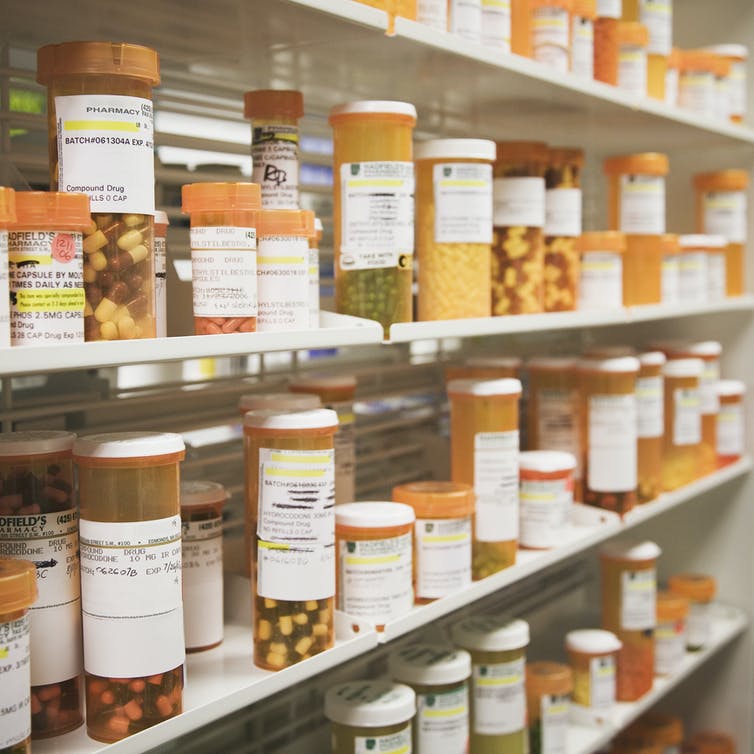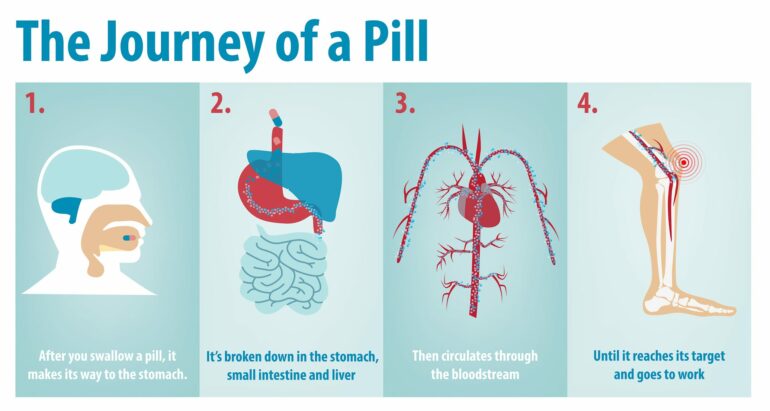When you take aspirin for a headache, how does the aspirin know to travel to your head and alleviate the pain?
The short answer is, it doesn’t: Molecules can’t transport themselves through the body, and they don’t have control over where they eventually end up. But researchers can chemically modify drug molecules to make sure that they bind strongly to the places we want them and weakly to the places we don’t.
Pharmaceutical products contain more than just the active drug that directly affects the body. Medications also include “inactive ingredients,” or molecules that enhance the stability, absorption, flavor and other qualities that are critical to allowing the drug to do its job. For example, the aspirin you swallow also has ingredients that both prevent the tablet from fracturing during shipping and help it break apart in your body.
As a pharmaceutical scientist, I’ve been studying drug delivery for the past 30 years. That is, developing methods and designing nondrug components that help get a medication where it needs to go in the body. To better understand the thought process behind how different drugs are designed, let’s follow a drug from when it first enters the body to where it eventually ends up.

Drugs aren’t sentient, but good design can help them get where doctors and patients want them to go.
Andersen Ross/DigitalVision via Getty Images
How drugs are absorbed in the body
When you swallow a tablet, it will initially dissolve in your stomach and intestines before the drug molecules are absorbed into your bloodstream. Once in the blood, it can circulate throughout the body to access different organs and tissues.
Drug molecules affect the body by binding to different receptors on cells that can trigger a particular response. Even though drugs are designed to target specific receptors to produce a desired effect, it is impossible to keep them from continuing to circulate in the blood and binding to nontarget sites that potentially cause unwanted side effects.
Many factors, like your age, genetics and diet, can affect how well your body processes a drug.
Drug molecules circulating in the blood also degrade over time and eventually leave the body in your urine. A classic example is the strong smell your urine might have after you eat asparagus because of how quickly your kidney clears asparagusic acid. Similarly, multivitamins typically contain riboflavin, or vitamin B2, which causes your urine to turn bright yellow when it is cleared. Because how efficiently drug molecules can cross the intestinal lining can vary depending on the drug’s chemical properties, some of the drugs you swallow never get absorbed and are removed in your feces.
Because not all of the drug is absorbed, this is why some medications, like those used to treat high blood pressure and allergies, are taken repeatedly to replace…
